Interview: Lafayette Gilchrist- Piano man speaks his mind
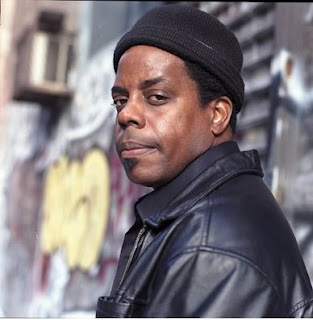 I recently talked to Baltimore jazz pianist Lafayette Gilchrist over a cup of coffee at a small lunch place on Cathedral Street.
I recently talked to Baltimore jazz pianist Lafayette Gilchrist over a cup of coffee at a small lunch place on Cathedral Street.
If asked to pick the jazz musician out of a lineup, you’d pick Lafayette. He puts out a vibe of intense creativity on a level that is rare even among artists and musicians, and might not necessarily come across in the transcript.
Going along with that, he also has strong opinions on a broad range of issues, not just jazz music, so the interview is formatted a little bit looser, the questions a little more general on purpose. With that said, even the most mundane opinion can sound like sage wisdom when voiced by a veteran jazz performer of some repute.
Be sure to check out pianist/ academically trained economist and historian/ boxer/ thinker of thoughts Lafayette Gilchrist and his band The New Volcanoes at Joe Squared on March 22.
Aural States- I recently saw a poster for one of your performances and I thought, “Man, this guy’s name keeps turning up everywhere I look. He’s taking over Baltimore.”
Lafayette Gilchrist- Oh man. I hope that’s not the case, because there are a lot of wonderful and talented musicians here…I mean I hope there is room for all of us. Don’t have to be one cat, just one cat.
AS- You’ve kind of become the piano man of Baltimore, but I was just wondering if you have met Baltimore’s other preeminent pianist, have you met Leon Fleischer?
LG- Yes. I spent an afternoon with Leon Fleischer. John Lewis, who writes for Baltimore Magazine—he does the music articles, the music critic rather for the magazine. He did an article a couple years ago with me and Leon Fleischer actually sitting down and having a conversation. Yea, we did that. He’s a nice man, a very nice man. He lives over there off of…he lives in those nice houses. If I bought a house, I’d buy one in an area like that.
AS- Give a short introduction to what motivates you to make music.
LG- Oh, man. Well what motivates me…I don’t think about it so much these days, but I guess if I had to, I’d still say it’s the sense of adventure, and journey into the unknown that still keeps me motivated. Knowing that each time you play something, you know it’s different from any other time that you played it before, or play it after. Sometimes just that knowledge is stimulation enough. You know, sometimes I can’t wait to wake up, just to play and see what I sound like on that particular day. And I’ve never been disappointed, as everyday it’s a little bit different. I may play the same piece for three weeks in a row, or something, and each time it is a little different. So, I guess to sum it up, music is endless discovery.
You know when you’re on that journey some things are very beautiful, and some things are very painful, and some things fall in between all of that. Ecstasy, agony, you know. Everything between those two extremes is a trip within itself. So music is like life, it’s endless. It transcends human life. It connects you to something else, something else that comes from before the beginning. I don’t know. That’s what it feels like to me anyway.
With art it’s really more about how it feels, than how it is, you know. How it feels has to do with how it’s perceived, how it’s perceived has to do with what angle it is approached from. So if you look at it like that, and you experience it like that, then music is this endless thing that keeps drawing you to it, at least that’s what it is for me.
Like a moth to a flame, that’s how music always drew me, and it still does. I can’t resist it. It calls me. It’s like even when you’re exhausted, and you’re just ready to go down. You just had a long night, a long gig, you get in at three or four o’clock in the morning. You just hauled your keyboard up three flights of stairs, but you can’t wait to get that keyboard set backup again. Mine is set up in my bedroom, right next to my bed. I can’t wait to put that thing back together, because no matter how exhausted I am after a gig, I always hear something new, especially if I am playing with the New Volcanoes.
With the Volcanoes I always hear something I hadn’t heard before. Probably something Nate does with the drums, or maybe a figure that Blue might play with the bass, or maybe a snippet of Gabriel Ware’s saxophone solo. I just start playing with it, those little ideas. Those kernels if you will, swimming around. You start chasing them. You get in the water and swim around with them, and before you know it the Sun is up and it’s another day.
That used to be constant. Now that’s not so constant, but it still visits me quit often. Those particular moods still visit me.
AS- Why is it not as constant?
LG- Well I’m starting to travel more, and I’m working more, more material to keep track of…The mundane details of life are starting to crowd in, you know. You can’t practice because you have to be here to do this, or you’ve got to take this person there. You know, just the things of life. It’s more of a fight to keep that at bay, at least long enough were I can create. I guess it’s just a natural process of being a grownup.
But you know artistic people are never trying to be grownups. That’s like the last thing we want to be. We feel defeated when we have to behave like grownups. It’s like “Aw man, I got into this business so I wouldn’t have to do grownup shit. Have someone else do grownup shit for me.” Naw, I’m just kidding.
But still we never really want to be adults totally, because that stuff weighs you down. And when stuff weighs you down, that affects your imagination, you know. That’s just part of being in the world.
Sometimes I think that human lives are like batteries. When you get to a certain point, which is not necessarily a function of age, it’s just a function of living—you know, the pace of it. When you get to a certain point you realize that your batteries may need to be recharged, replaced, or may just run out. Depends on what kind of deal you can work out.
AS- You never played the piano until age 17. What happened in that moment, at age 17, when you first laid fingers on the keys?
LG- It was around ’85 or ’86. It was my freshman year, and I had to take some, what do you call them, buffer classes, or what have you…I had to take some classes over the summer before the fall semester started. So, I got there and registered early. This English class I had to take happened to be in the fine arts building. I happened to wonder into the recital hall one afternoon, where there was a nine-foot Steinway grand piano on the stage.
I started by walking up to it, and approaching it. It seemed like it was just sitting there, waiting on me. So, I sat down to it, and I remember putting my foot on the sustain pedal and just pretending I could play. Then I noticed when I would play something if I laid on the pedal too long the tones started to overlap and mud. So then I learned how to come up off of the pedal, and when to press the pedal and when not to, to make it sound musical, to make it sound full. I was able to figure that out inside of an hour of just sitting down and noodling on the thing.
A friend of mine wanders by, and hears me in there, and says to me “Oh, I didn’t know you played man. You sound good,” and walks back out. I didn’t think nothing of it at the time really. I just came back every day. There was something really therapeutic about the experience. There was a losing of one’s self. It was like I could quit my life for a minute. I could suspend time, and I could suspend having to function socially in a way that felt less than real. So music kind of gave me an escape from all of that.
Slowly I began to meet people in the music department, beginning to become interested in taking music classes, but my mother and my stepfather didn’t see it that way at the time. They really opposed it. So I ended up just kind of doing it in secret. It was like I had discovered something.
For about two years I took music classes whenever I could. I would bug by friends, two of which are in my band. That’s where I had first met Freddie Dunn, and Michael Cerri. I met John Dierker a little bit later. I met John about a year or two later after I had met Freddie and Mike.
Freddie and Mike, around the time that I met them I was attempting to write music out. But I was writing it out all wrong. So they would take it and play through it, and I’d be like “Oh is that what I wrote?” And they would say “Well play for us what you had in mind,” and they would help me with correcting the notation and what not. Slowly I began to learn how to write. I got books out of the library. I would have been a good music student, if I had been able to major in music because I was pretty motivated. I went out and got the books myself.
You can learn anything you want with books and apprenticeship really. And that’s how I really learn to play, from getting music books and seeking out people like Carl Grubbs.
I met Carl in the early ‘90s. I started coming to his house and just playing together. He would teach me things, and have me play through things. I was pretty awful in those days.
Another guy that helped me out a lot was Witt Williams. Witt is like a saxophone legend in these parts, all the cats know him. He’s real tight with Jimmy Heath, you know, all the old school Bebop guys. Witt is coming from the Dexter Gordon, Wayne Shorter kind of approach. Carl is coming more from the Coltrane, Eric Dolphy, Albert Ayler…those people have a little bit more weight with his thing. So I’ve got a nice section of the best of the music from the 50s and the 60s. And then somewhere along the way I fell in love with Thelonious Monk, and Bud Powell, and Horace Silver…all the great Hard Bop pianists—Bobby Timmons, Cedar Walton. Then later I became interested in McCoy Tyner, and some of the lesser known heroes like Randy Weston, Andrew Hill, Horace Tapscott, Cecil Taylor, Don Pullen, John Hicks, of course David Murray…David is probably the biggest impact on my music at this point, because in the last record I put out, 3, I was really able to expand myself compositionally and also learned how fire and energy can be integral parts of my technique. David’s stuff has been really influential in helping me integrate that into my language. It is rooted in Bebop and Hard Bop, but it’s constantly evolving.
That’s the shame about this music called “jazz” in a way, because a lot of that individual development and refinement is ignored. The jazz press has become just like the general press and the media. They are seeking out what they can make into the most sensationalized and hyped stuff without really investigating the substance there. I don’t know why that is. I guess they are trying to sell magazines, man. That rule of journalism–if it bleeds it ledes, if it thinks, it stinks—applies to the jazz press too, which is bad.
AS- Is this true for you? How do you see yourself in that situation?
LG- Yes, I have been really fortunate in terms of media attention, but I don’t credit that to the institutions themselves, as much as the individuals in the institutions who want to seek something else out. I’ve been very fortunate on that front, but in terms of like a larger media break through, or something like that, I feel I would have to dumb down the music and/or tone down the more militant aspects of what I do. Both of which I refuse to do.
AS- What would be these militant aspects?
LG- The rhythmic structure. I am not interested, not interested at all, in using music as some kind of soapbox from which to preach some set of political ideas from.
The militancy comes through an examination of objective conditions and the natural responses to them, and a refusal to ignore them and sweep them under the rug so the people can have nice pretty music. To me that is empty art. To tell the truth, if it’s ugly, then it is what it is. If it’s beautiful, then it’s both at the same time.
AS- You recently played in Europe. Was there a difference in how your performances were received by European audiences compared to an American audience?
LG- There’s not really a difference man. I mean a handclap is a handclap. The audiences are really not that much more different. It’s just that in Europe you have various governments…support of the arts is an integral part of their governments. It’s budgeted better than it is here. That’s the only thing. And what you spend money on, you have to sell; in terms of selling the fact that it is valued, to your population. Europe has always had a stronger tradition of that than America, because it is older. So the cultural environment is a little different with respect to the arts. But that’s because of the leadership in their government, not because of anything peculiar in the population.
AS- About a month ago I went to a lecture at Peabody on a non-Western, non-classical form of music. The person giving the talk kept trying to make it clear to the students that viewing all music through the lens of classical music is myopic. A lot of the students were adamantly against the speaker’s grouping of jazz with Western art music, almost indignant.
LG- Well that’s a problem. If you talk about that, well the root of that is really racial. Not to call the individuals racist, but that’s the institution’s stance in regard to it. And that’s the thing that impresses the Europeans the least about America. That’s the way they look at America. And I’ll be even more blunt, when I talk to Europeans, that’s the way they look at white Americans. They don’t look at me the way. They look at white Americans as European wannabes from a cultural prospective. They look at black Americans as the only original shit coming out of America. Both of which are probably distortions, but that attitude you witnessed at Peabody doesn’t help.
AS-I got the sense that the guy giving the talk really picked up on that feeling.
LG- That’s rough. That’s a rough crowd…But that’s actually part of the conversation that Leon Fleischer and I had. I said “Leon, classical musicians work less than jazz musicians. What are you setting them up for at Peabody? I mean all they are going to be able to do is teach. Maybe some of them will get jobs with an orchestra.” I mean they can’t go out and get any gigs, because they’ve only learned how to do this one thing. If you’re going to work as a musician, you have to be able to do several things. The language that is spoken in American popular music, whether you talking about rock, folk…I mean I’ve done all kind of gigs. I even did a bluegrass gig once. Most the time the music is communicated on paper through what is called a lead sheet. I remembered I played with these bluegrass guys in Arbutus, and I had never played that music before, but they had lead sheets.
When I sit down with classically trained musicians, a lot of them don’t even know what a chord is. If I say “play me an A flat minor and 7, play me a D flat minor 7,” they don’t even know what it is. Which throws them out of the loop right there. They can’t read a lead sheet, they can’t swing, they can’t play no other type of music. They can’t swing, they can’t rock, they can’t funk. They’re left with a very, very small thing.
I get very disappointed with the jazz academia guys, because it’s like “Is that what y’all want for jazz? I mean is that what you want for jazz, pushing this great American art form, is that what y’all want? You want what happened to classical music to happen to jazz? For it to be strangled, held? I mean you can only play this little amount of material for which there is little demand.
What are these kids paying to go to Peabody, 30, 40 grand? I’d be goddamned if I would send any of my kid to a music conservatory and paying 30, 40 g’s and all they can play is some damn Flight of the Bumblebee. I mean how are you going to pay that money back?
Some of them will land a nice job in an orchestra, but the orchestras are cutting back. I mean it not just the Meyerhoff, it’s all the major symphony orchestras in all the major cities are having major problems—they are not putting butts in the seats. People are not coming out to hear that music. Part of the reason is they keep playing music that is three or four hundred years old, and they are not mixing it with any contemporary works. They don’t make room for any modern…I mean they barely play 20th century music in most of these orchestras, and we’re well into the 21st century. Where is the growth there?
Part of the problem is that the only people who support classical music are these narrow-minded aficionados that really think they know something, but they know nothing, hardly. They’ve got their own little set of people that they like, and the same thing goes on in jazz radio. The same bullshit goes on in jazz radio. You get this group of elite aficionados that have their favorites, and they have their corporate play list that is submitted to them. And very often what gets on this play list is what is seen as reliable product. And it’s usually some big name that goes along with this reliable product, some big name artist, who watered his shit down 20 years ago. You know everyone loves him or her.
One of the problems with the European scene is that because they had more of an appreciation historically, they were the first to recognize jazz. They recognized its value way before the Americans did. So because of that they feel entitled to comment and weigh in on American jazz and society and how it’s going. They make a lot of good points, but I’m not really sure they know what the hell they are talking about.
When you’re coming from a place like Europe, you’re that much further away from the source, because the source of the so called jazz music…then you’re talking about black Americans as a group from the turn of the 19th century on up to present. Then your talking about a people and a culture with another, almost held captive within a larger people and culture. I don’t want to say it’s a subculture, because that is a bit of a loaded term. I don’t use that term. But it was a really specific culture that existed, and it’s a real inside thing, especially when you get into jazz.
That was a really, really high achievement for blacks. When you think about what black Americans had to go through in this country around in turn of the century, in the 1920’s, in the 1940’s, through the 50s and the 60s, the music was not thought of in the way it is thought of today. When I talk to older people, like my family, like my grandmother…she would go hear Count Basie or Duke Ellington and she said “Oh yea, because that made life bearable. It made us freer, inside.”
And that energy just doesn’t stay inside, it moves. Now it’s different, we’re in a different period. It’s not a segregated society anymore. My generation, and the generation after me, we never knew the outward things of segregation. We came up in a different era were stuff is a lot more out in the open, especially with this election year. Stuff is starting to push out into the open, and I’m sure it will push out more if Barak or even Hillary gets the nomination.
I like Obama. I think that he has tapped into something that I’ve been looking for awhile. For a while I’ve been looking to see who could do it, who could pick up on the energy that’s out there. When I listen to him and Hillary talk about their campaigns, to me that’s the biggest difference between the two of them.
The biggest difference is their campaigns, and the nature of them and how they are run. Hillary sounds in the 20th century, Barak sounds in the 21st century. I mean forget about the race and gender shit, that’s just fodder for people to write about—“Hehehehe…This is historical!” It’s not historical motherfucker; it’s about damn time! I mean what the fuck is so unreasonable about having a woman or any person of color as president…we’ve been having that for over 200 years.
We’ve had great presidents, but my contentions is that you can only pull from one part of the gene pool for so much, before you come up empty and have to give someone else a chance. They might have some answers that you haven’t thought about, some perspectives to add to the thing. And we’re starting to see it like that. I’d like to think, and we’ll see, that a lot of whites are starting to see it like that. Like “Wait a minute, let’s spread it around a little bit.” I mean it can’t be the same guys election after election after election.
If Hillary gets it, it will be disappointing for me man, not because I’m against her or nothing. I think she is excellent, I think she is great. But it’s like we’ve had the papa Bush, the baby Bush, the husband Clinton, and the wife Clinton. No man, we’re in the new century. We need a clean break. Let Obama make his mistakes, he’s going to make mistakes…even Kennedy made mistakes. But the important thing is that the mantle has to be passed.
Even the old Civil Rights guard, who were the hardest guys to get because they were all pro Hillary and didn’t really like Obama that much. But I saw in the news the other day that John Lewis, the representative from Georgia, says, like “I love the Clintons, but my district man, its all Obama. What can I do?” He’s got to come out and endorse Obama at this point.
AS- In addition to touring heavily, and recording new material, you also teach. How does that factor in to the situation?
LG- The thing I’ve having the most fun doing is teaching the children, my kid students. I started teaching students about three or four years ago. I found that the kids, because they ask the simple questions, they really make you think. It caused me to do two things. To take the way I approach music apart and really analyze it and look at it, because I had to.
There I have to communicate this to another person. You can’t say, “Oh man, c’mon you know what I’m saying.” You can’t say that to a seven-year-old kid, because he doesn’t know. So that challenges you to really understand what you are doing from a different perspective, a different angle. Something like as simple as fingering a major scale, I know that. But how do I show a kid to do that, who has never used those muscles to make sounds. You have to start from scratch.
But the biggest thing that you have to communicate to kids is that you love music. To me that is the single message I have to get through to those kids. If kids know that you love music then you’re like the pied piper, you got them. They’re there because they want to know what it’s about anyway. So the challenge is to explain music in a way that is fun, and get them doing things that they didn’t think that they could do. Things that looked so amazing to them when I did it. And they come in not believing that they can do it, and to be able to show them that they can do it, that is a big rush. I love that. I feel that not only am I learning, but I am contributing something really concrete to society.
When you sit up in front of somebody’s kid that’s no joke. They are bringing their most important thing to you. Like “here’s my child, spend half and hour with him once a week.” That’s nothing to play with, that’s serious. So that’s what I’ve been able to do.
–Bez
Related posts
- Carl Grubbs with Lafayette Gilchrist: Exploring the Jazz TraditionsSupported by a grant from the Maryland State Arts Council,...
- Interview: Dysrhythmia (w/ Kevin Hufnagel)Photo credit: Ed Marshall Dysrhythmia unleashed devastating sonic lethality this...
- Interview & Review: Robert Walter Trio @ the 8×10Robert Walter Trio (Robert Walter – keyboards, James Singleton –...
- Interview / Exclusive Audio: Sri AurobindoCheck our world premiere download of the first track off...
- Interview: Girl Talk (w/ Gregg Gillis)[Audio clip: view full post to listen] MP3: Girl Talk...





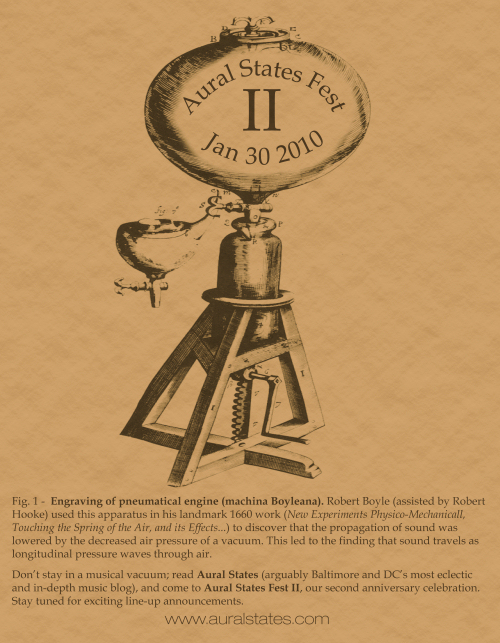
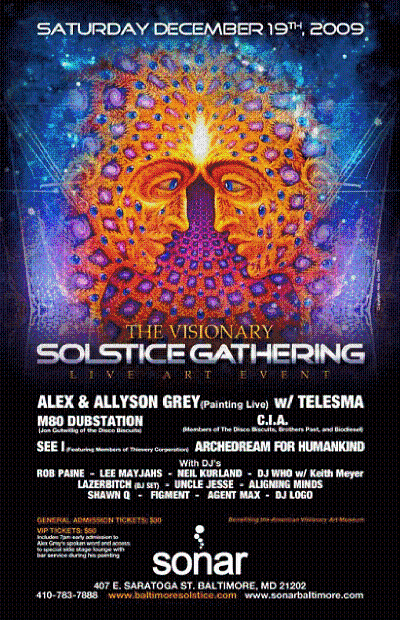









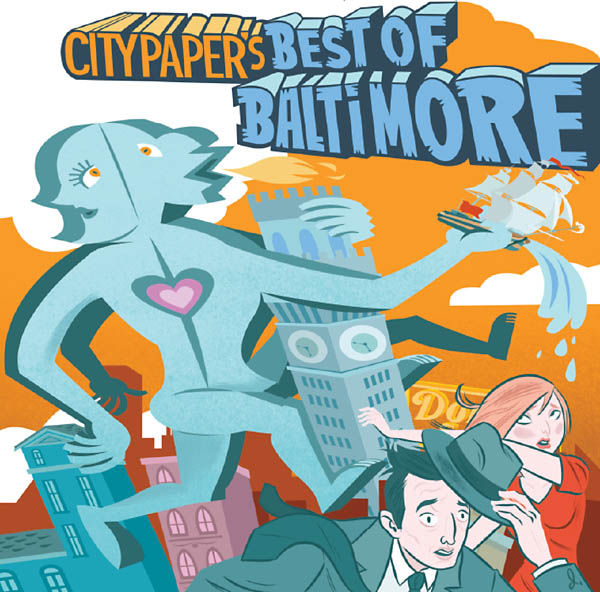
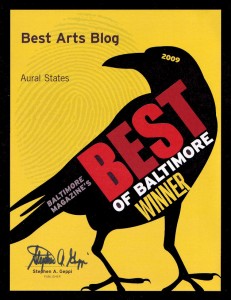


 Double Dagger: Masks EP
Double Dagger: Masks EP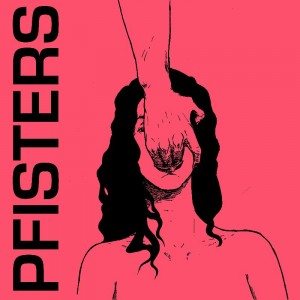 Pfisters: Narcicity
Pfisters: Narcicity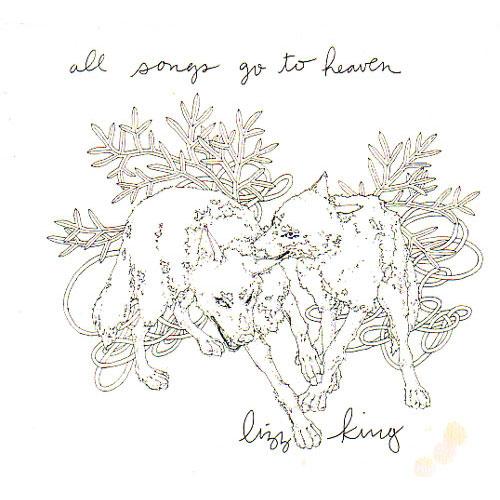 Lizz King: All Songs Go To Heaven
Lizz King: All Songs Go To Heaven Imperial China: Phosphenes
Imperial China: Phosphenes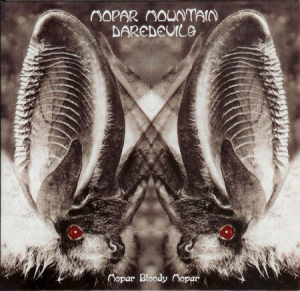 Mopar Mountain Daredevils: Mopar Bloody Mopar
Mopar Mountain Daredevils: Mopar Bloody Mopar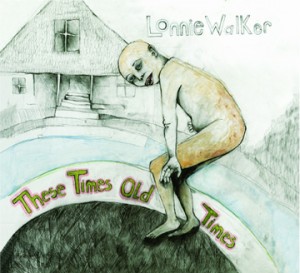 Lonnie Walker: These Times, Old Times
Lonnie Walker: These Times, Old Times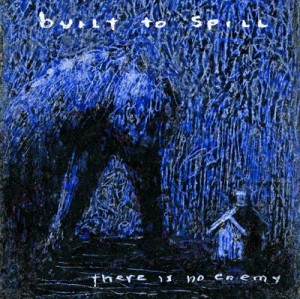 Built to Spill: There Is No Enemy
Built to Spill: There Is No Enemy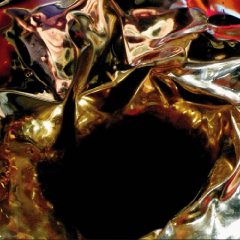 Hypnotic Brass Ensemble: Hypnotic Brass Ensemble
Hypnotic Brass Ensemble: Hypnotic Brass Ensemble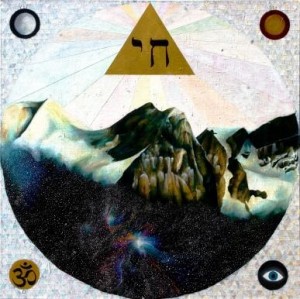 Secret Mountains: Kaddish EP
Secret Mountains: Kaddish EP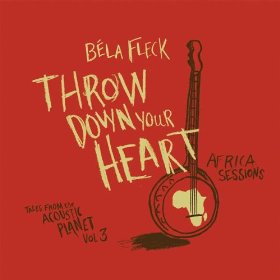 Bela Fleck: Throw Down Your Heart: Tales From the Acoustic Planet, Vol. 3 -Africa Sessions
Bela Fleck: Throw Down Your Heart: Tales From the Acoustic Planet, Vol. 3 -Africa Sessions Lands & Peoples: Lands & Peoples EP
Lands & Peoples: Lands & Peoples EP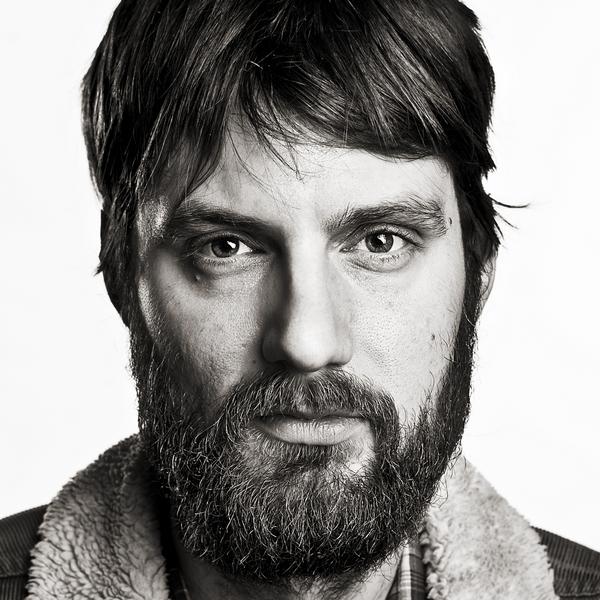 Caleb Stine: Eyes So Strong and Clean
Caleb Stine: Eyes So Strong and Clean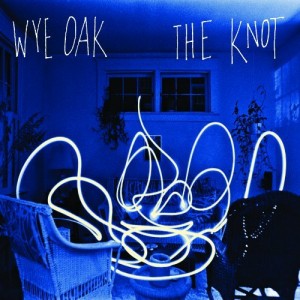 Wye Oak: The Knot
Wye Oak: The Knot Pontiak: Maker
Pontiak: Maker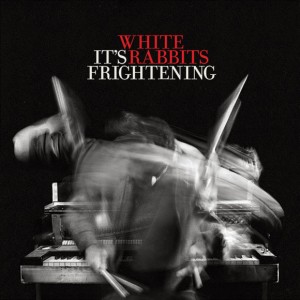 White Rabbits: It's Frightening
White Rabbits: It's Frightening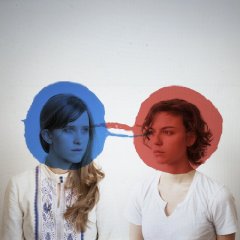 Dirty Projectors: Bitte Orca
Dirty Projectors: Bitte Orca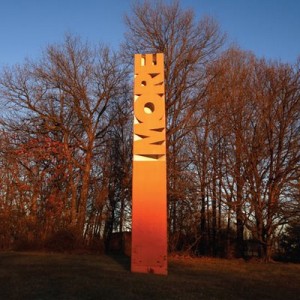 Double Dagger: More
Double Dagger: More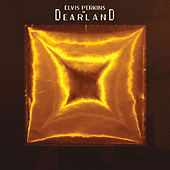 Elvis Perkins in Dearland: Elvis Perkins in Dearland
Elvis Perkins in Dearland: Elvis Perkins in Dearland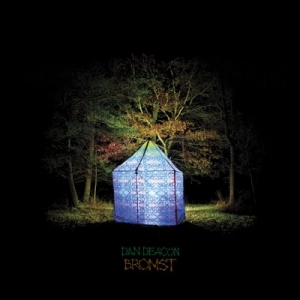 Dan Deacon: Bromst
Dan Deacon: Bromst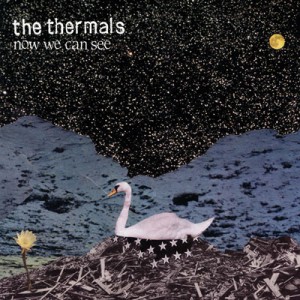 The Thermals: Now We Can See
The Thermals: Now We Can See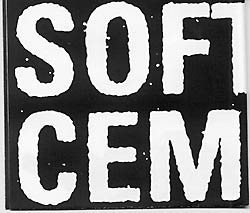 Soft Cement: Think About It EP
Soft Cement: Think About It EP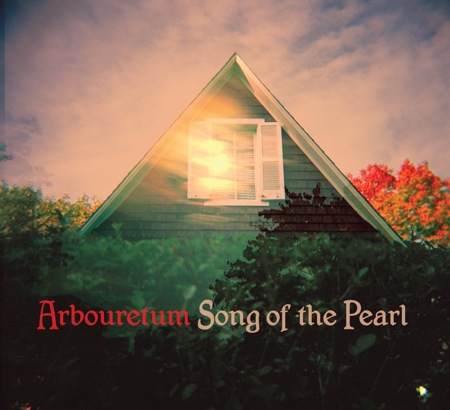 Arbouretum: Song of the Pearl
Arbouretum: Song of the Pearl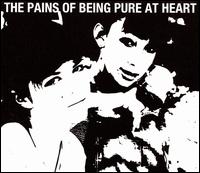 The Pains of Being Pure at Heart: The Pains of Being Pure at Heart
The Pains of Being Pure at Heart: The Pains of Being Pure at Heart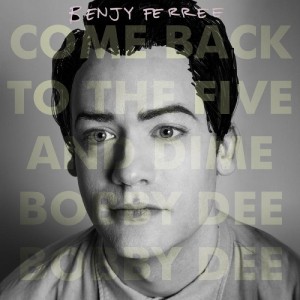 Benjy Ferree: Come Back to the Five and Dime, Bobby Dee Bobby Dee
Benjy Ferree: Come Back to the Five and Dime, Bobby Dee Bobby Dee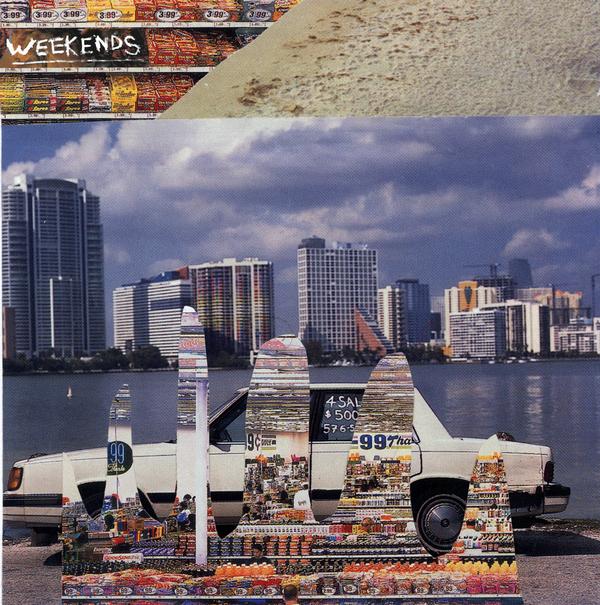 Weekends: Weekends
Weekends: Weekends Height With Friends: Baltimore Highlands 12" LP, Limited-Run Vinyl Only
Height With Friends: Baltimore Highlands 12" LP, Limited-Run Vinyl Only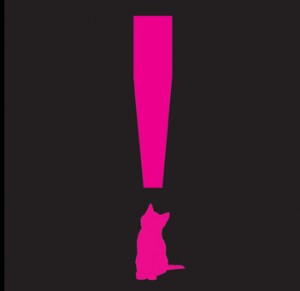 Caverns: Kittens! EP
Caverns: Kittens! EP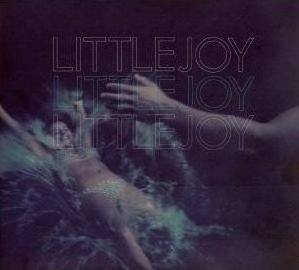 Little Joy: Little Joy
Little Joy: Little Joy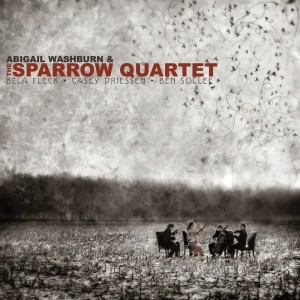 Abigail Washburn & the Sparrow Quartet:Abigail Washburn & the Sparrow Quartet
Abigail Washburn & the Sparrow Quartet:Abigail Washburn & the Sparrow Quartet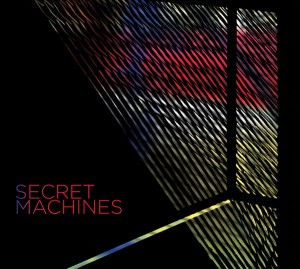 The Secret Machines: Secret Machines
The Secret Machines: Secret Machines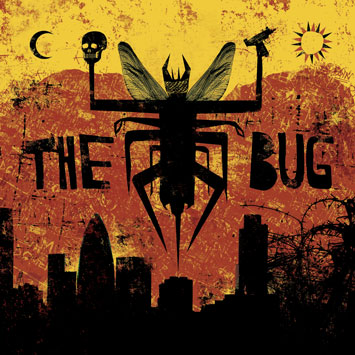 The Bug: LondonZoo
The Bug: LondonZoo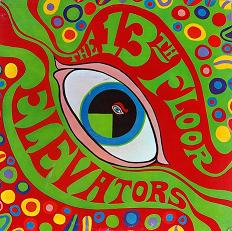 13th Floor Elevators: Psychedelic Sounds of the 13th Floor Elevators (Vinyl Mono LP only)
13th Floor Elevators: Psychedelic Sounds of the 13th Floor Elevators (Vinyl Mono LP only) Arbouretum/Pontiak: Kale (Vinyl LP only)
Arbouretum/Pontiak: Kale (Vinyl LP only) Small Sur: We Live in Houses Made of Wood
Small Sur: We Live in Houses Made of Wood AbeVigoda: Skeleton
AbeVigoda: Skeleton ImperialChina: Methods: EP
ImperialChina: Methods: EP
Excellent interview! Great to see Lafayette getting more exposure. Hopefully the word will spread beyond Baltimore.